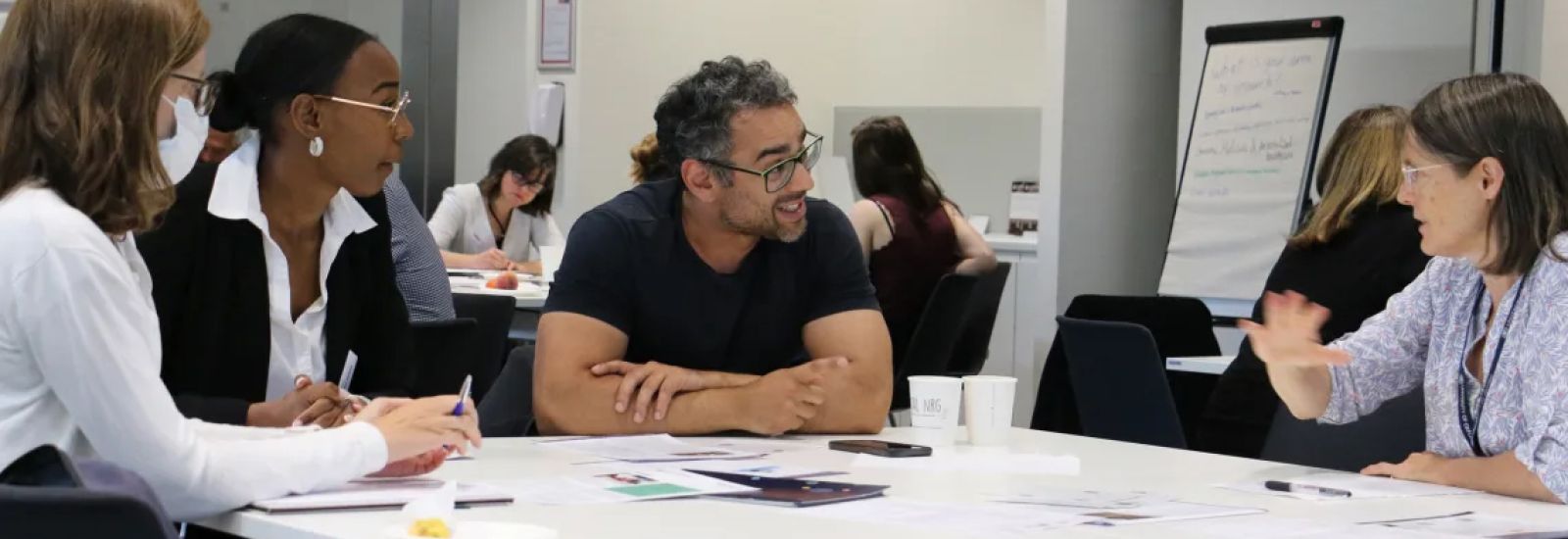
From Research to Policy: a masterclass in engaging the UK Parliament with scientific evidence
On Monday 20 June, Oxford Population Health collaborated with the Parliamentary Office of Science and Technology to deliver a special event to inspire greater interaction between researchers and policy makers.
This blog was written by Dr Caroline Wood in 2022 for the Nuffield Department of Population Health website and originally appeared there.
Most policy makers do not have a scientific background, so it is vital that important decisions and new legislation are informed by trustworthy evidence. To support this, the Oxford Policy Engagement Network works to equip researchers, doctoral students and professional services staff at the University of Oxford with the knowledge and skills to communicate their work to the policy-making community.
This year, the network presented its first OPEN Showcase event: a week-long programme of seminars, panel discussions, and workshops to explore the opportunities for policy engagement and the benefits/challenges of doing so. As part of this, Oxford Population Health and the Big Data Institute hosted a masterclass in communicating research evidence to the UK Parliament, featuring guest speakers, interactive activities and real-life case studies.
The event began with a brief introduction to the UK Parliament by guest speaker Natasha Mutebi (right), who then described the role of the Parliamentary Office of Science and Technology (POST), an impartial science advisory body for both Houses of the UK Parliament. ‘What makes POST distinct is that it is completely impartial, with a focus on producing balanced, peer-reviewed evidence reviews’ said Natasha, a Social Sciences Advisor at POST. ‘We do not tell policy makers what they should do; we merely present the evidence as it is. This makes us a highly trusted source of information.’
POST’s most recognisable output is their four-page POSTnote, a succinct yet comprehensive summary of the evidence base on a topical issue. ‘The idea behind a POSTnote is that a time-pressed MP or Peer could read one whilst they have their breakfast, and then have an instant grasp of all the key issues surrounding the subject’ said Natasha.
Many POSTnotes are written by PhD students undertaking three-month Fellowships at POST. Recent POST Fellow Claire Kanja (left), a PhD Researcher in plant pathology, described her experience researching and publishing briefing papers on drug therapies for COVID-19 and preventing emerging zoonoses. ‘Researching a POSTnote is a very comprehensive process, as it involves consulting experts from all key stakeholder groups, including academia, industry, Government departments, charities, and think tanks. We have to remember that scientific evidence is only one part of the debate – we have to consider social and economic impacts as well.’
In the afternoon session, the focus was on the role of Parliamentary Select Committees. These shadow and scrutinise the work of Government departments and undertake inquiries into topical issues. ‘During an inquiry, Select Committees collect evidence from a wide range of different perspectives. Any member of the public can submit evidence to an inquiry, but they are especially keen to hear from researchers undertaking work in that area’ said Natasha.
In some cases, engaging with Select Committees can even influence new legislation, as Caroline Wood, Communications Officer for Oxford Population Health, illustrated with the UK Soft Drinks Industry Levy (also called the ‘Sugar Tax’) in 2018. A key influence for the tax’s introduction was the Health and Social Care Select Committee’s 2015 report on Childhood Obesity. This specifically recommended a tax on sugary drinks, based on research evidence on the potential impact it could have on reducing sugar intakes (including work led by Oxford Population Health).
The event concluded with a masterclass in how to write a policy briefing paper for Parliamentary audiences. ‘The key thing is to make sure it is accessible, easy to understand, and concise’ said Natasha. ‘If your briefing paper is too long, not clearly structured, and full of technical jargon, it doesn’t matter how good your evidence is - it is not likely to be read.’
Really informative event. I feel I now understand how research gets into policies and Parliamentary reviews much better.
POST provides a valuable bridge linking research and policy and great opportunities for PhD students to join the linking process.
Judging from the feedback, the participants found the event highly useful:
The event was funded by OPEN. If you are a researcher, doctoral student or member of the professional services staff at the University of Oxford and would like to be kept up to date with current opportunities to contribute to POSTnotes or Select Committee inquiries, you can sign up to receive the OPEN email newsletter. You can read about a researcher’s experience of contributing to a POSTnote on our policy webpage. Are you a doctoral student who would like to gain first-hand experience of communicating research to the UK Parliament? Find out about the POST Fellowship scheme on the POST website.